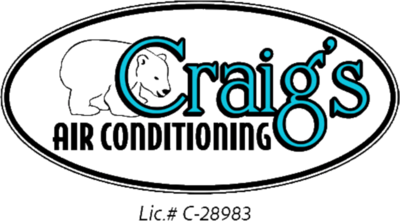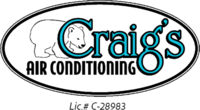Are AC Maintenance Plans Worth It?
For all homeowners, regular AC maintenance is essential not merely for cooling purposes. It's a cost-effective way to keep your HVAC unit working its best. Allow us to explore this in detail.
Table of Contents
- Benefits of AC Maintenance
- Drawbacks of AC Maintenance
- Importance of Maintenance For Infrequent AC Users
- Optimal Times For AC Servicing
- Factors Determining Maintenance Frequency
- Risks of Neglecting AC Maintenance
- Choosing the Right Maintenance Service
- Conclusion
- Considering Regular AC Maintenance In Hawaii?
- FAQs
Benefits of AC Maintenance
Energy Efficiency
An AC working at its prime not only cools your home faster but also conserves energy. With routine maintenance, every component, from the fan blades to the internal circuits, functions efficiently. Periodically, this can save you money on your energy bills.
Extended Lifespan
Just as vehicles need oil changes and tire rotations, your AC requires periodic attention. These interventions can deter regular wear and significantly extend its life. When viewed over the years, these regular checks can postpone the hefty expense of a complete system replacement.
Cleaner Air
We cannot overstate the importance of indoor air quality. Regularly cleaning your AC's filters and ducts reduces the spread of dust, pollen, and other allergens. This not only gives cleaner indoor air but also helps reduce allergy problems.
Issue Prevention
Routine maintenance can unveil nascent issues, allowing for timely interventions. This proactive approach not only prevents larger complications but also saves you money in the long run.
Peace of Mind
Air conditioning units that undergo consistent maintenance provide peace of mind. Nothing beats the comfort of a consistently cooled room, especially during extreme weather fluctuations.
Drawbacks of AC Maintenance
Maintenance Costs: Expert check-ups and interventions aren't free. Prices can differ based on service providers and the complexity of the work.
Time: In today's fast-paced world, finding time can be challenging. Add to it, during peak seasons, securing an appointment with a reputable HVAC technician can test your patience.
Importance of Maintenance For Infrequent AC Users
Contrary to popular belief, even those who use their AC units sporadically need routine check-ups. Dormant units can accumulate dust and even pests, both of which can hamper their efficacy.
Furthermore, seals might dry out and refrigerant levels could decrease over time, further denting its performance. Periodic professional oversight ensures that even the least-used units remain in optimal condition.
Optimal Times For AC Servicing
Considering the diverse climates across regions, it's crucial to be aware of your locale's peak temperature months. In Hawaii, peak temperatures are in August and September. Planning your maintenance just before this period ensures your AC runs seamlessly when you need it most.
Factors Determining Maintenance Frequency
Usage Patterns: The extent to which you rely on your AC can guide its service frequency.
Local Climate: In hot or humid places, AC units work harder. So, they need frequent checks.
Room Size: The size of your room, paired with the capacity of your AC, can determine its wear rate. An ill-fitted system can lead to more frequent servicing needs.
AC System Type: Different systems, from window units to ductless setups, have their unique needs. For instance, central systems, with their expansive ductwork, might need more regular cleaning.
Risks of Neglecting AC Maintenance
Safety Hazards
One of the most alarming consequences of neglecting AC maintenance is the safety risk it poses. An unmaintained system is prone to electrical issues, which can result in short circuits or even fires. Regularly check AC units to detect hidden problems like bad wiring, faulty parts, or rusted connections.
For a deeper understanding of potential problems, explore our guide on the 6 Common AC Problems.
Inefficiency and Energy Wastage
A poorly maintained air conditioner uses more energy to cool the air effectively. Not only does this lead to increased utility bills, but it also contributes to unnecessary energy wastage. The strain on the system also results in uneven cooling, reduced comfort levels, and an overall drop in performance.
Compromised Air Quality
Over time, without proper care, air filters can become clogged with dust, pollen, and other contaminants. This makes the system less efficient and can spread dirty air inside, which can be harmful to people living there.
Choosing the Right Maintenance Service
Specialization: Choose technicians specialized in your AC's brand. For Mitsubishi or Fujitsu units, opt for certified Mitsubishi Diamond or Fujitsu Elite contractors, as their brand-specific training ensures quality service.
Certifications and Recommendations: Prioritize technicians with recognized certifications and good recommendations. They likely stay updated with current best practices.
Rebate Eligible Contractors: Some technicians collaborate with rebate programs, giving monetary incentives for the maintenance of energy-efficient systems. Choose a qualified rebate-eligible contractor to benefit from these schemes.
Conclusion
AC maintenance goes beyond mere comfort. It's about the health, safety, and well-being of everyone at home. Consider the type of air conditioner you have and its usage pattern to craft a maintenance plan. This preventative maintenance will ensure your unit's long and efficient service life.
Considering Regular AC Maintenance In Hawaii?
We have advanced tools and certifications for Hawaii's top brands, including Fujitsu and Mitsubishi. Partnering with Hawai'i Energy, we offer rebates to enhance your savings.
Watch the dramatic transformation of a mini-split AC unit in this 'Before & After' cleaning video. From a previously neglected state to a spotless, like-new interior after our meticulous cleaning process.
Schedule Now for Quality and Savings!
Call today at (808) 682-0970 or inquire online.
Frequently Asked Questions
-
It is advisable to inspect filters every month. Depending on the dust levels and usage, cleaning or replacing them every 1-3 months is optimal.
-
For most users, an annual AC service is adequate. However, based on individual usage patterns, we may suggest more frequent check-ups. For optimal performance, we often recommend servicing semi-annually to quarterly.
-
While it may work, prolonged neglect can dent its performance, escalating costs in the long haul.
-
With regular care, most air conditioner systems can last 15-20 years. However, the brand and frequency of use can influence this.



